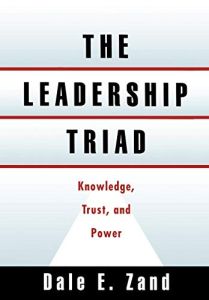Join getAbstract to access the summary!

Join getAbstract to access the summary!
Dale E. Zand
The Leadership Triad
Knowledge, Trust and Power
Oxford UP, 1996
What's inside?
Your employees form their reactions to you based on knowledge, trust, and power. Trust the powerful knowledge here for insights into their thoughts, and actions.
Recommendation
Dale E. Zand’s book effectively reviews the key elements of organizational leadership in the new management era. He intelligently discusses three major components of leadership - knowledge, trust, and power - in great detail. He uses straightforward examples to reinforce the principles presented. This is a valuable book for leaders who have experience in traditional management, and want to understand how and why they need to change. getAbstract.com recommends this book to managers on any level who need a non-guru approach to leadership in the knowledge economy.
Summary
About the Author
Dale E. Zand is a professor of management and the former chairman of the department at the Stern School of Business at New York University. He is a management consultant to major corporations and a director of the Newfield Exploration Company. He is the former chairman of the Organization Development Division of the Academy of Management and was a Ford Foundation Fellow at the Harvard School of Business.

















Comment on this summary